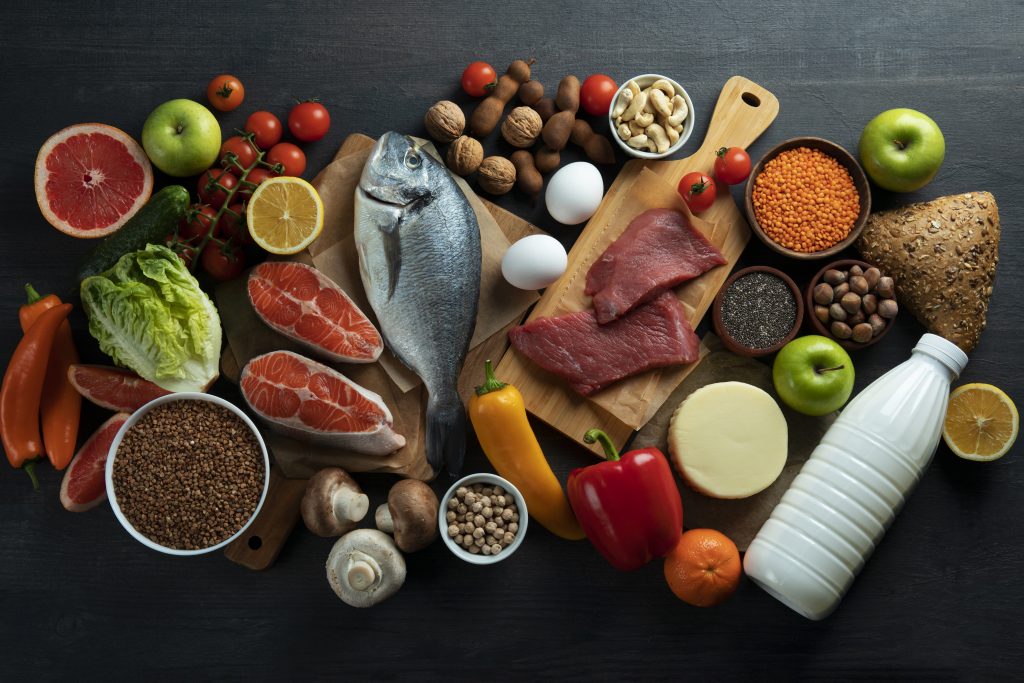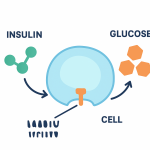
Protein is not only a nutrient. In fact, it is one of the best tools for managing weight and building a healthy body. It repairs tissues, supports your immune system, and keeps your metabolism active. Most importantly, this nutrient helps you feel full and protects your muscles during weight loss.
Where Does Protein Come From?
This nutrient comes from both animal and plant foods.
- For example, animal sources include meat, poultry, fish, eggs, and dairy.
- Meanwhile, plant sources include beans, lentils, tofu, tempeh, quinoa, nuts, and seeds.
As a result, both types can support weight loss when eaten regularly.
How Protein Helps With Weight Loss
1. Increases Fullness
These nutrient rich meals keep you full longer than meals high in carbs or fat. So, you eat fewer calories overall (Haider & Abbas, 2025).
2. Reduces Cravings
Lowers ghrelin (the hunger hormone) and raises peptide YY (a hormone that makes you feel full). Because of this, it cuts down on snacking and late-night cravings.
3. Boosts Metabolism
In addition, protein digestion burns more calories than carbs or fat. About 20–30% of protein calories are used just for digestion, compared to 5–10% for carbs and 0–3% for fat (Liu et al., 2025).
4. Protects Muscle
When you lose weight, you want to lose fat but keep your muscles. Nutrient-dense sources help preserve lean tissue, especially if you do resistance training. At the same time, it keeps your metabolism higher. In fact, new studies show that a high-protein diet protects against muscle loss in people using GLP-1 medications like semaglutide. For more on building muscle from scratch, check out our Beginner’s muscle building guide to learn workout plans, goal setting, and recovery basics.
5. Improves Body Shape
Finally, even modest weight loss can lead to a healthier muscle-to-fat ratio when intake is high. The result is a leaner, stronger, and more toned physique.
New Insights in 2025
Protein Quality
Whey protein is still the most studied option for weight management. However, plant proteins are gaining attention for their benefits and sustainability. On the other hand, not all of these nutrients are equal for muscle growth and metabolism.
How Much Protein Is Best?
Most research supports 1.2 to 2.2 grams per kilogram of body weight. Active people should aim toward the higher end. But, very high intakes (above 2.5 g/kg) may cause problems for people with kidney issues or poor bone health (Maleky et al., 2025).
Long-Term Safety
High-protein diets are safe for most people in the short term. Still, long-term studies are mixed. Therefore, a balanced diet with enough protein remains the safest bet (Mayo Clinic, 2025).
Protein and Medications
Some weight-loss drugs, like semaglutide, may cause muscle loss. Fortunately, eating more protein-rich can help reduce this risk (Endocrine Society, 2025).
When to Eat Protein
Finally, spreading this nutrient evenly across meals—and especially including it at breakfast—appears to maximize muscle synthesis and appetite control.
How Much Protein Should You Eat?
Most people aiming for weight loss should get 1.2–2.2 g of protein per kilogram of body weight (or 0.54–1 g per pound).
- If you are active, stay near the top of this range.
- If you are less active, the lower end may be enough.
Simple Ways to Eat More Protein
- First, add to every meal to stay full and burn more calories.
- Second, combine animal and plant varieties
- Third, use supplements, like whey, if you cannot get enough from food.
- In addition, choose mostly whole foods and limit highly processed options.
- Finally, ask your doctor if you have kidney issues or are using weight-loss medications.
Extra Resource
👉 Why Diets Fail and What Actually Worked – Everyday Mastery
Final Takeaway
Protein is one of the most effective nutrients for weight loss. It helps control hunger, boosts metabolism, protects muscle, and improves body composition. By eating enough from both animal and plant sources you can lose fat, keep muscle, and build a healthier body. In the end, it is a key part of any long-term weight management plan.


